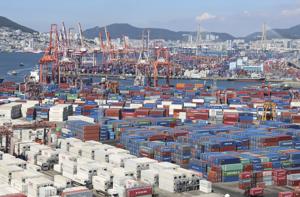President Donald Trump’s ambitious overhaul of American trade policy continues to send ripple effects across the globe, with the latest development being a 90-day extension of critical trade negotiations with Mexico. This move, stemming from a call with Mexican President Claudia Sheinbaum, temporarily defers a looming 30% tariff on Mexican goods, yet highlights the broader complexities and uncertainties embedded within Trump’s expansive Trump Trade Policy and its far-reaching Global Tariffs.
Adding to the intricate landscape, appellate court judges in Washington have openly questioned the legal rationale underpinning Trump’s imposition of these tariffs. Their skepticism centers on the administration’s unprecedented interpretation of the International Emergency Economic Powers Act (IEEPA), challenging the executive’s authority to levy such duties without explicit congressional approval. This legal scrutiny underscores the contentious nature of current US Economic Diplomacy and the legal battles accompanying significant International Trade Deals.
The extended dialogue with Mexico is a notable reprieve for a key trading partner, postponing the previously threatened higher tariffs. Mexican President Sheinbaum has voiced her approval of this delay, emphasizing the importance of continued negotiation and an equitable working relationship. This specific development offers a glimpse into the dynamic, high-stakes Trade Negotiations shaping bilateral economic relations within the larger framework of Trump’s trade agenda.
Beyond North America, Trump’s tariff strategy has created varied impacts across Europe and Asia. Countries like Norway and Switzerland are grappling with diverse tariff rates, ranging from 15% to 31%, affecting their exports to the U.S. Meanwhile, the European Union has reached a hard-wrought agreement on 15% duties for approximately two-thirds of its goods, illustrating the ongoing diplomatic efforts to navigate the landscape of Global Tariffs.
Further afield, Brazil faces significant challenges, with 35% of its U.S. exports impacted by new tariffs imposed under an executive order citing an “economic emergency.” India, too, is assessing the considerable Economic Impact of new 25% tariffs on its goods, alongside broader U.S. penalties. These measures exemplify the comprehensive reach of Trump Trade Policy and its strategic application as an instrument of US Economic Diplomacy.
The automotive industry, a cornerstone of global trade, is experiencing direct consequences. Luxury car manufacturers like Ferrari have implemented price surcharges on imports to the United States, while major European ports like Zeebrugge have seen shifts in logistical operations. Even specialized sectors, such as the French skincare company Yon-Ka, are reporting significant business strains, including job freezes and rising prices, directly attributable to the cascading effects of International Trade Deals and their associated tariffs.
Amidst the widespread imposition of tariffs, some regions are seeing new forms of economic engagement. Pakistan has finalized a trade agreement focused on oil exploration and reduced tariffs, signaling new bilateral opportunities. Similarly, South Korea has welcomed a trade deal, viewing it as a chance to bolster both economic cooperation and military ties with the United States, highlighting the diverse outcomes of ongoing Trade Negotiations.
The overarching theme remains one of pervasive uncertainty and strategic recalibration within the global economic order. As various nations continue to navigate the intricacies of Trump’s trade policies, businesses worldwide are left to contend with fluctuating tariff rates, complex negotiations, and the tangible Economic Impact on their operations and supply chains. The ongoing evolution of these International Trade Deals underscores a volatile yet pivotal period in global commerce.






Leave a Reply